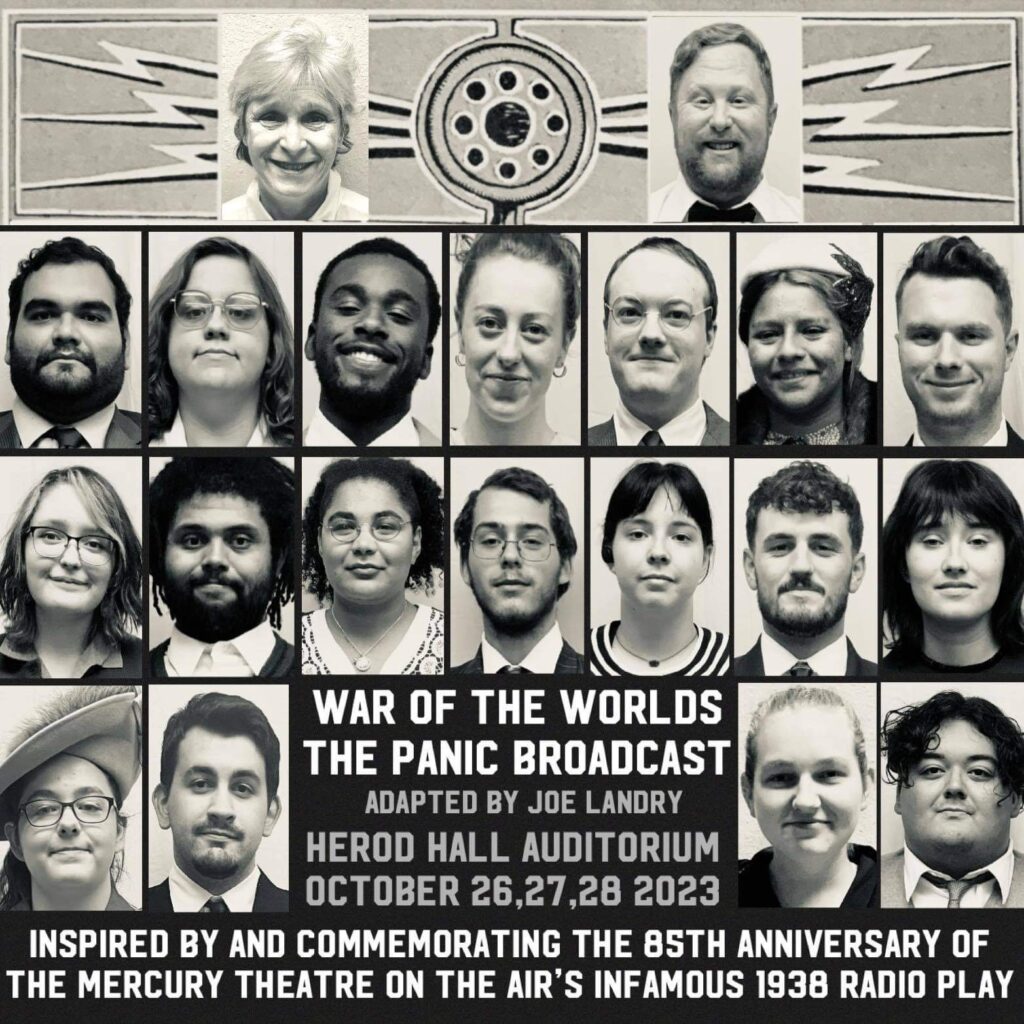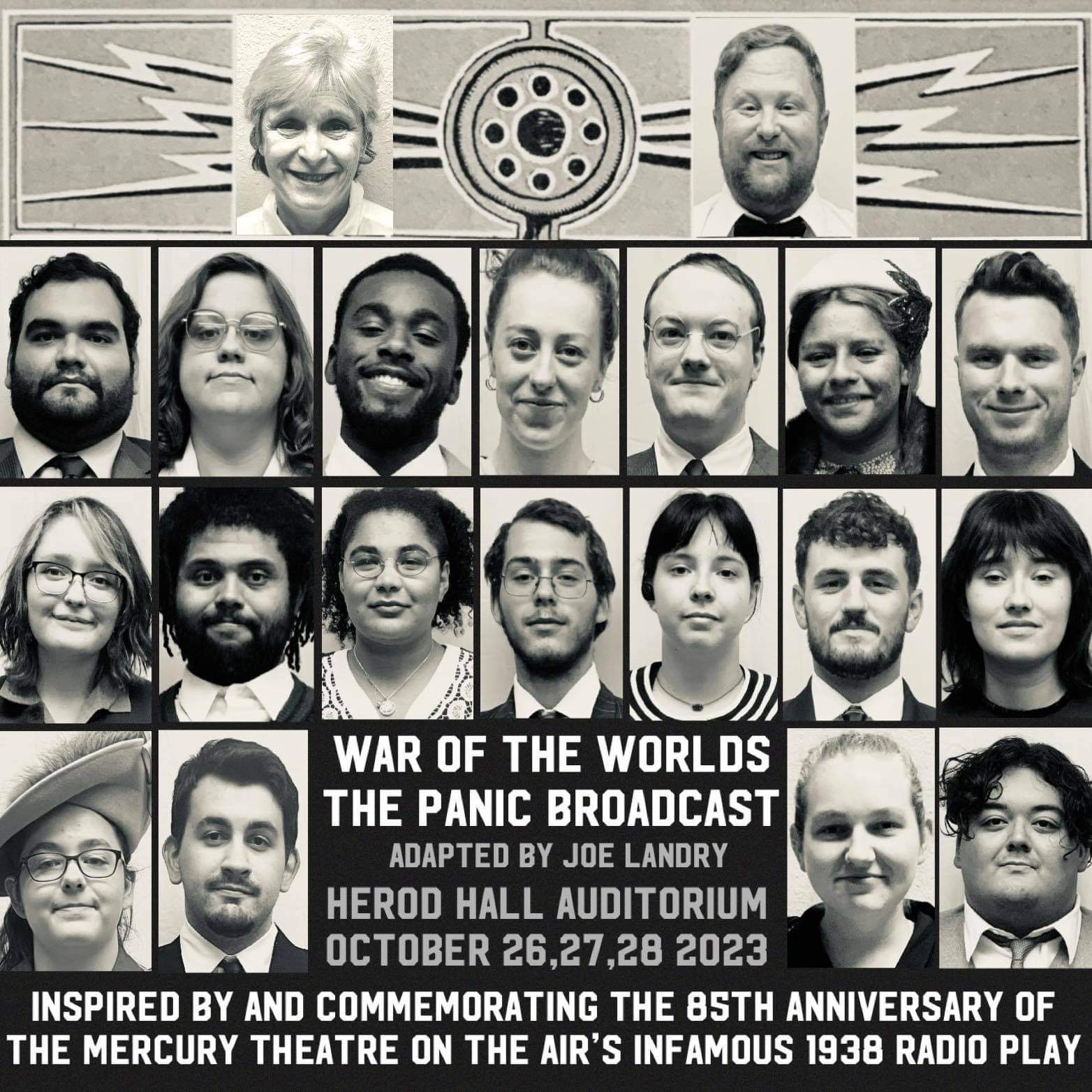By KRISTEN KIRTLEY
Assistant Editor
The NWOSU Reichenberger Department of Fine Arts will host the production of, “War of the Worlds: The Panic Broadcast” beginning Oct. 26 at 7 p.m.
The production will occur in the Herod Hall Auditorium, and will be shown two times after opening night. The second showing is on Oct. 27 at 7 p.m., with the final showing on Oct. 28 at 2 p.m.
The cost for general admission will be $10, the cost for NWOSU employees will be $5 and the cost for students will be $3.
Kimberly Weast, a professor of Theatre Arts at NWOSU, explained that the play is an adaptation of the original radio play from October of 1938 and the history that occurred during that period.
Herbert George Wells, also known as H.G. Wells, wrote the book “War of the Worlds” in 1937. On Oct. 30, 1938, a radio adaptation of the book aired on the CBS radio station on a series called Mercury Theatre.
Weast pointed out that television did not exist during that time period, so listening to radio productions was the main form of entertainment for the public.
“World of the Wars turned the world upside down,” Weast said.
Weast also mentioned that War of the Worlds is the reason there are certain rules still followed today that pertain to what can be done on live television and radio, because of the chaos that the production created.
Orson Welles, the star of the production, was an actor and director with no relation to Wells.
What Welles wrote was only a radio show, but the production by NWOSU Theatre is about the show and the history around it.
“We are presenting the original production of War of the Worlds within this play,” Weast said. “It is basically a play within a play.”
Weast also mentioned that a live orchestra performed the sound effects in the original production. She explained that a live orchestra is not financially realistic, so only a small amount of the music will play over the speakers, and the actors will do the rest of the sound effects live.
The actors will also be acting with scripts in order to mimic the original production.
Weast said NWOSU theatre’s goal is to strive for a sense of reality, also known as verisimilitude, for the period they are attempting to portray.


